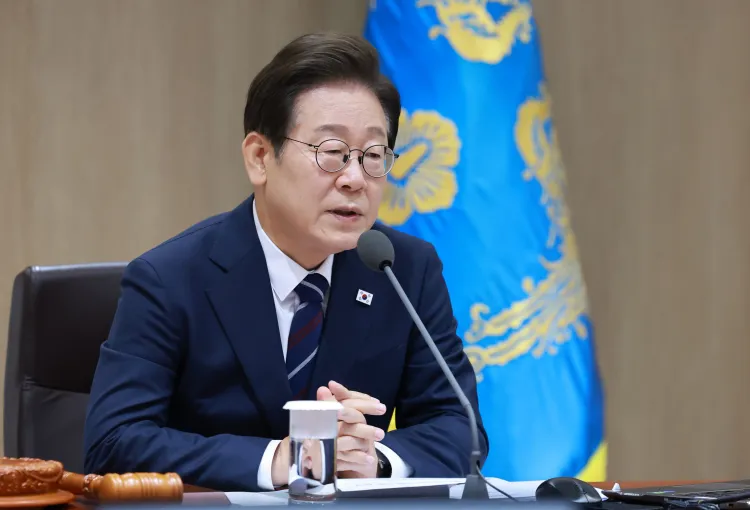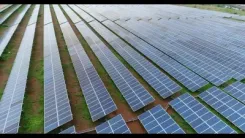Has Housing Instability in South Korea Been Fueled by Real Estate Speculation?

Synopsis
Key Takeaways
- Housing instability in South Korea is largely driven by speculative investments.
- The government is implementing measures to reduce household lending.
- Alternative investment options are slowly emerging with market stabilization.
- Current mortgage-backed loan limits will help manage real estate speculation.
- Monitoring of the housing market is crucial for future policy adjustments.
Seoul, July 1 (NationPress) President Lee Jae Myung stated on Tuesday that the influx of liquidity into speculative investments in housing has resulted in significant housing instability. He emphasized the critical need to diversify investment avenues to diminish the heavy reliance on real estate.
"Investment options have been predominantly restricted to real estate, transforming homes into mere instruments for speculation, which has exacerbated housing instability," Lee remarked during a Cabinet meeting.
Lee highlighted the necessity of sustaining the current positive trends in both the stock and financial markets to expand investment opportunities for the populace, according to reports from Yonhap news agency.
"Fortunately, with the recent stabilization of the stock and financial markets, alternative investment options are gradually emerging," he noted. "It is essential that we continue this favorable trajectory."
On the previous Friday, the Financial Services Commission mandated that all local financial institutions significantly reduce household lending. Furthermore, mortgage-backed loans for property purchases in the capital region will have a ceiling of 600 million won (approximately US$442,000) starting this week.
The initial real estate policy under Lee's administration was introduced in response to a rapid increase in household debt and soaring property prices in Seoul.
The presidential office has stated it is closely observing the housing market to evaluate the effects of the tightened lending regulations.
"We are currently monitoring how the market is reacting to these lending rules," said presidential spokesperson Kang Yu-jung, adding that assessments are also being conducted on the supply side in relation to the demand for new housing.








